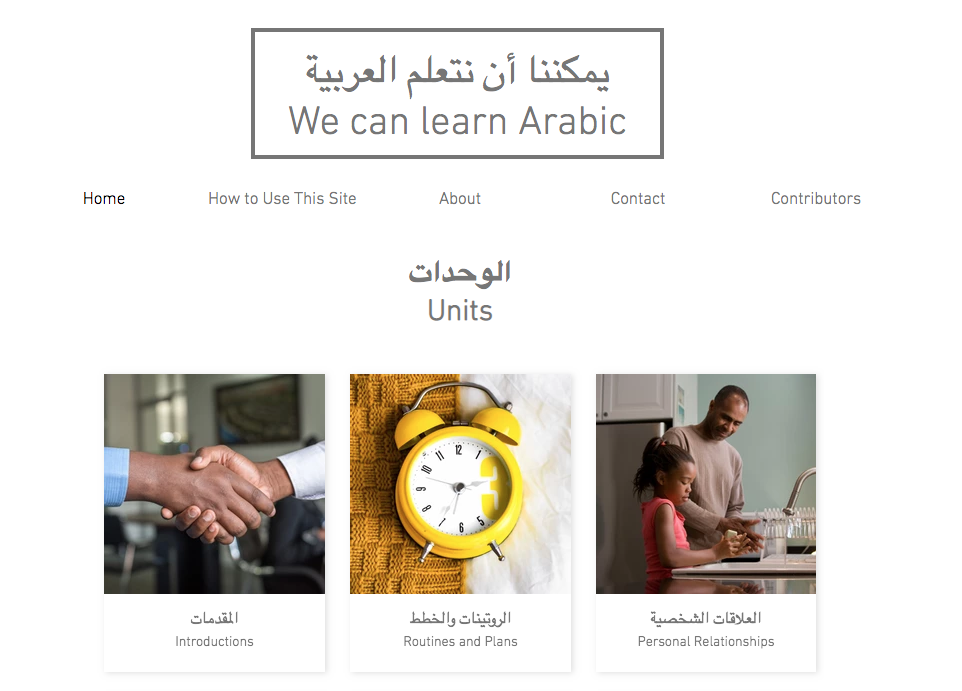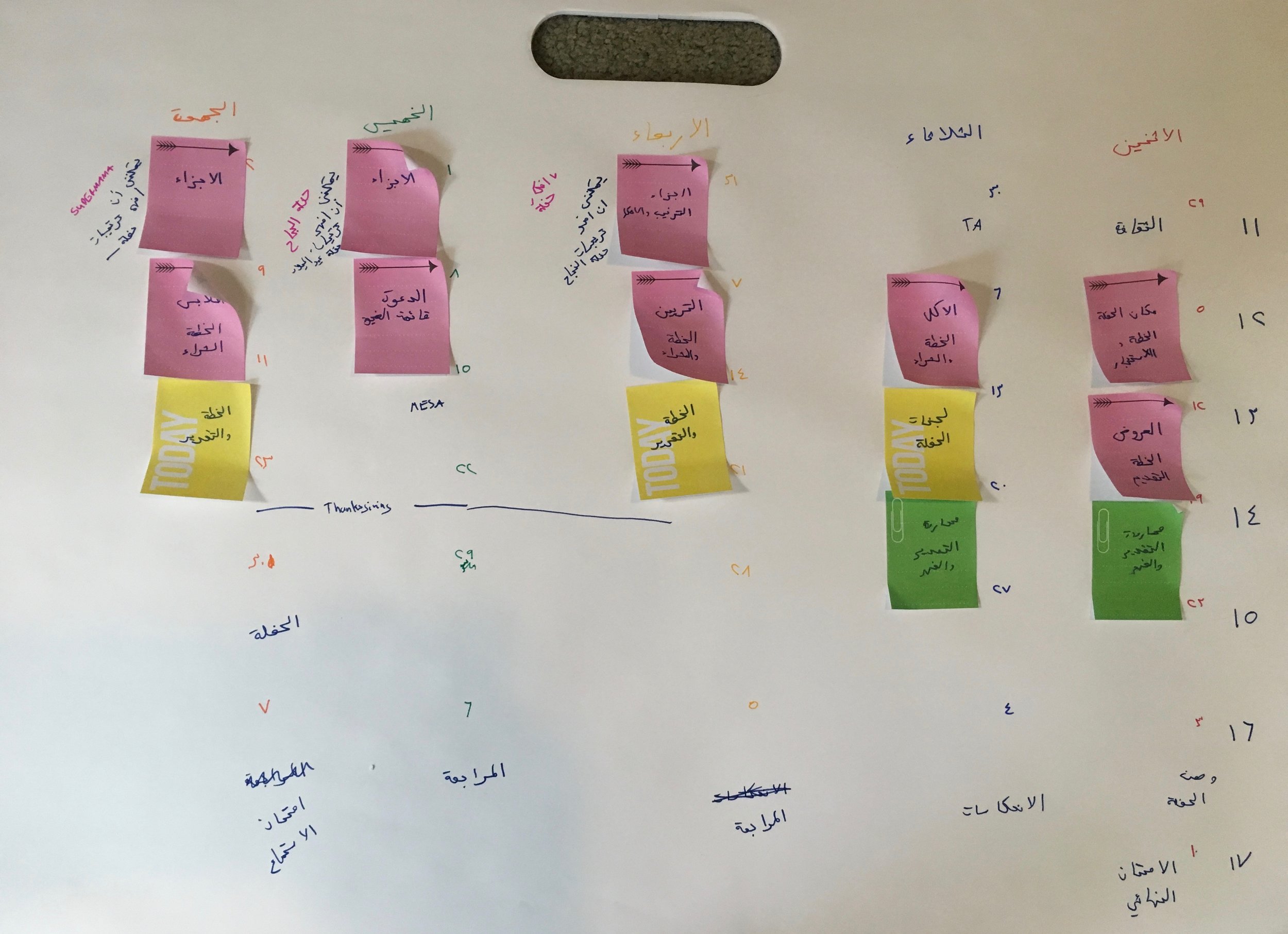Tag: genre-based approaches
-

Introducing: the We Can Learn Arabic website!
As I’ve detailed in my curriculum development posts over the last two years, we have slowly been replacing our textbook with our own materials, generally based on texts we find on the internet or create ourselves. Although I’ve frequently been asked when we will make our own textbook, I’ve actually never been interested in making…
-

Lesson plans: Genre-based approaches and the interpersonal mode
The American Council on the Teaching of Foreign Languages (ACTFL) describes three modes of communication: interpersonal, interpretive, and presentational, and lists Can-Do statements in each of these modes. The presentational mode is for sharing information, opinions, etc, and usually consists of one person communicating with a larger audience, either in writing, speech, or multi-modal forms.…
-

Color-coding to develop meta-linguistic awareness in the classroom
In genre-based approaches to language learning, one of the key goals is to teach students not only what texts mean, but how they mean, so students can use (or resist) these conventions when they express themselves. While the goal of understanding WHAT a text means is fairly straightforwards for students and instructors, I find that…
-

Curriculum Development Part 8: Week 6 Recap, and Final Thoughts
In my last post, I described Weeks 3, 4, and 5. In this post, I’m back with a recap of Week 6 and some final thoughts on the project. I’ve also placed links to all of the curriculum development posts leading up to this unit at the end of this post if you want to…
-

Curriculum Development Part 4: Unit Plan and Week 1 of Party Planning
As I mentioned in my previous curriculum development posts, this year in our Intermediate Arabic classroom we are moving away from the textbook and designing our own units informed by genre-based approaches to language learning. We are concluding our unit on housing, and starting our unit on planning an end of the year party. This…
-

Curriculum Development Part 2: Finding Texts
This post is part of an ongoing series as I document our process for developing curricular units inspired by genre-based approaches to language learning and translanguaging pedagogy. Previous posts in the series include a background post and choosing tasks (Part 1).
-

Genre-based approaches in the language classroom: the appeal and the challenges
I first learned about genre-based approaches to language teaching in a pedagogy class in graduate school, where we read two articles describing various aspects of the Georgetown German Curriculum. I was immediately attracted to this approach, and have been working to implement this type of curriculum for the last six years in our Arabic classes…
-

Curriculum Development: The Background
The more I teach, the more I become interested in the process, and the complex interplays between theories of language, theories of pedagogy, context and practice. When I first started teaching, I would become frustrated when I couldn’t match what I envisioned as the “ideal” theory or practice to the classroom. Yet as I gain…
-
What is language? Functional theories
Like formal theories of language, functional theories of language come from the field of linguistics, although this type of linguistics is less commonly found in the U.S.. The type of functional linguistics I am most familiar with is Systemic Functional Linguistics, based on the work of Michael Halliday, and practiced predominantly in Australia. While I…